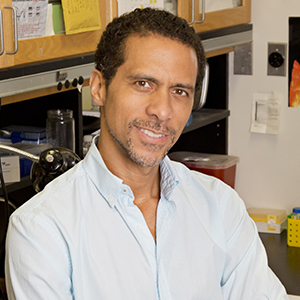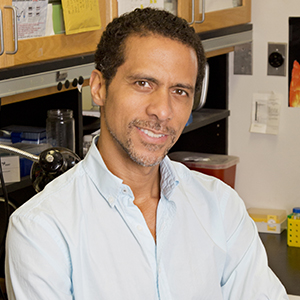

The ability to speak has allowed our species to pass knowledge between generations, articulate complex ideas, and build societies. Dr. Erich Jarvis uses song-learning birds and other species as models to study the molecular and genetic mechanisms that underlie vocal learning, including how humans learn spoken language. He is interested in how their brains, and ours, have evolved to produce this complex behavior.
Beyond his work with songbirds, Jarvis is interested in using genomics to develop a comprehensive understanding of how vocal-learning and vocal non-learning species are related, providing insight into how vocal learning and other complex behaviors have evolved. As the co-leader of a consortium of over 200 scientists, from 101 institutions in 20 countries, Jarvis helped oversee the sequencing of genomes of species representing nearly all avian orders.
Most recently the Jarvis lab has begun to study the molecules that guide neuronal connections, called axon guidance molecules. Jarvis hypothesizes that these molecules make the difference between a vocal learner and non-learner by directing the formation of a crucial neural circuit. This motor circuit, which has been linked to vocal organs, is believed to make fine motor control in the larynx possible, allowing the production of imitated speech.
The Jarvis lab and others predict that the presence or absence of this neural circuit is one of the key transformations in the brain that enables vocal learning, and that axon guidance molecules are responsible for its creation. One of the Jarvis lab’s long-term goals is to use these molecules to induce a vocal-learning circuit in a species that can’t normally imitate speech, such as a mouse.
In 2002, the National Science Foundation awarded Jarvis its highest honor for a young researcher, the Alan T. Waterman Award. In 2005 he was awarded the National Institutes of Health Director’s Pioneer Award providing funding for five years to researchers pursuing innovative approaches to biomedical research. In 2008 Dr. Jarvis was selected to the prestigious position of Investigator for the Howard Hughes Medical Institute.[4]
Jarvis was an associate professor of neurobiology at Duke University Medical Center until he moved to Rockefeller in December 2016.
Jarvis received a B.A. from Hunter College and a Ph.D. from The Rockefeller University under Dr. Fernando Nottebohm.
